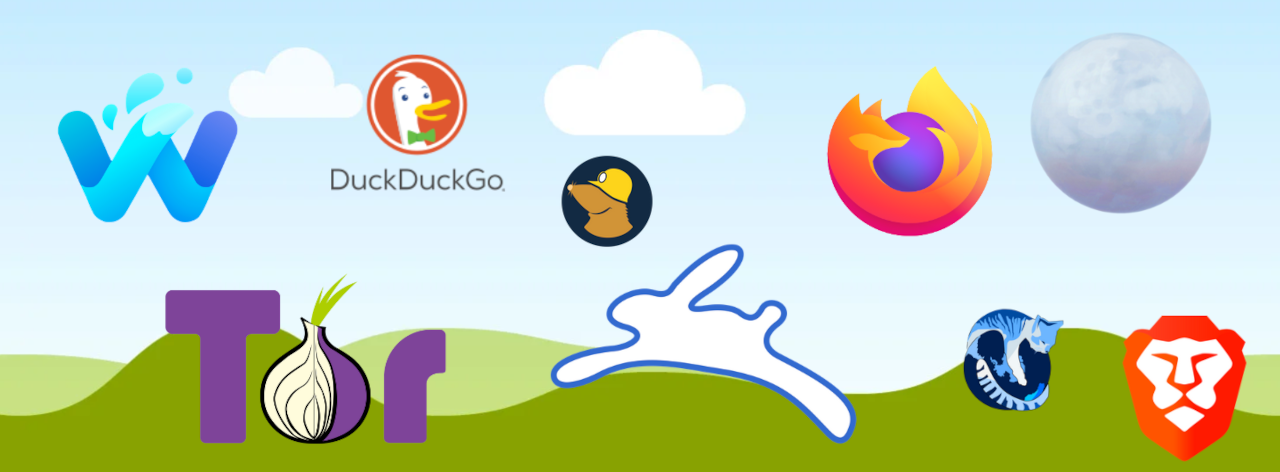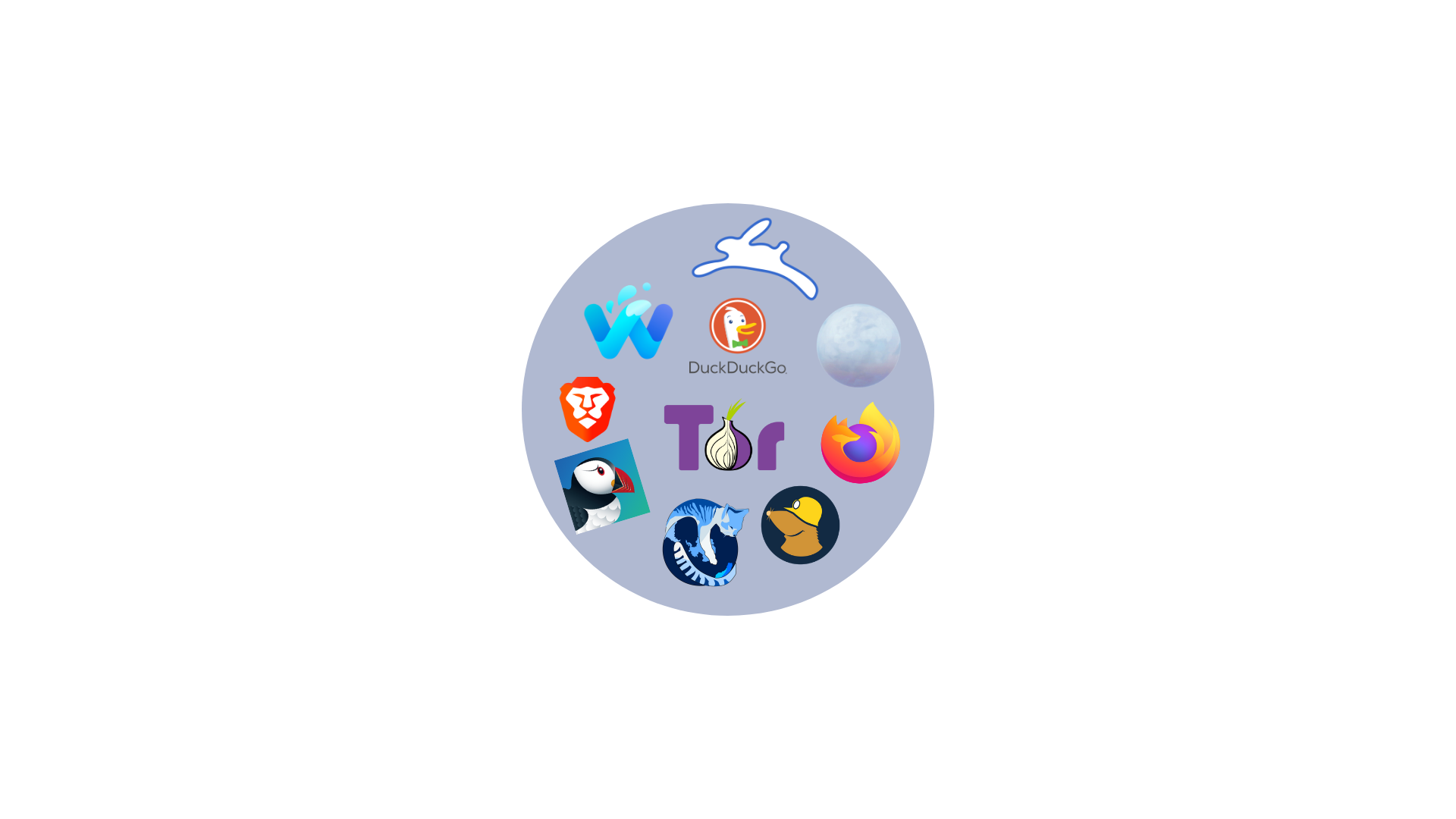Why Bother With uBlock Origin Being Blocked In Chrome? Now Is The Best Time To Switch To Firefox
Choose the browser that best suits your privacy needs.
2023-11-20
Your choice of web browser is the crucial link between yourself and the world wide web. When you purchase a new device it typically comes pre-installed with a browser like Microsoft's Edge, Apple's Safari, or Google's Chrome. But these browsers may not fit your personal privacy needs, particularly since Chrome is going to show more ads in the future. When choosing the browser remember that via this browser you access your entire online identity. It is crucial to use a private browser to protect yourself and your data - and we'll help you pick the best one!
Why Choose a Private Browser?
Every site you visit tracks you in one way or the other, some sites require an account to view their content, others require allowing cookies, and this information is vacuumed up by web advertising agencies whose existence is predicated upon turning your browsing behavior into a product for marketing executives.We already know how Gmail scans your email content, but what advertisers and others are doing with your browser data is a black box. The advertising industry likes to not talk about how tracking your entire online behaviour enables them to create profiles about yourself, your family, friends, and colleagues, and how this data helps them to post targeted ads to maximize the profits they can get - simply from harvesting your data.
But you have the power to stop this!

Today we will go ahead and take a look at a number of privacy-oriented web browsers outside those provided by Big Tech, which treat you like a human being and not a bullseye for targeted advertisement revenue. Let's dive into it!
For our purposes we will be dividing the browsers into three categories: Mainstream Privacy, Alternative Privacy, and Top Anonymity.
If you would like to run some of these comparisons yourself or even just make a quick privacy-checkup the EFF has released a great tool called Cover Your Tracks which can be used to see what information your browser may be sharing with websites and organizations interested in your online activity. After running this test, I am sure you will be so creeped out, you'll want to switch to a private browser right away!
We will take a look at the unique features provided by each browser along with some pros and cons of adopting them.
Pick the Best Private Browser
Our Top 10 Browser List:

Mainstream Privacy
No. 1 Firefox: The Best for Basic Privacy
When it comes to open source alternatives to Big Tech web browsers like Chrome or Safari it is hard to go wrong with Mozilla's Firefox. First introduced as Firefox in 2004, the browser quickly grew in popularity as an alternative to Microsoft's Internet Explorer. The browser continued to grow and met its major challenger when Google introduced Chrome. At present Firefox is the fourth most popular web browser behind the three leading Big Tech browsers.Firefox boasts a great deal of privacy advantages over the mainstream default browsers. First of all, it is owned and developed by a non-profit so tracking user data is not their primary source of revenue. Firefox also releases its code as open source meaning that it is open for the world to see, so you know exactly what the browser is doing when running on your machine.
Recent versions of Mozilla's browser have also introduced a powerful number of features which can streamline your online experience. They currently offer a password manager, page translation, anti-fingerprint tracking and ad-blocking, multi-device sync so that you don't lose your tabs and bookmarks when juggling devices, and Mozilla has also introduced their own VPN service in a partnership with Mullvad.
But where Firefox really shines is with its massive library of browser extensions.
One of the more interesting privacy specific extensions provided with this browser is the Facebook Container extension, which explicitly blocks any Facebook tracking cookies which may be trying to track your online activities. This will not stop Facebook from tracking your behavior on their own websites, but any of their off-site tracking attempts will be blocked. One sad point here is that the container only applies to Facebook and not other known trackers. This can be improved by adding other extensions to your browser like Privacy Badger from the Electronic Frontier Foundation.
Firefox also offers a Multi-Account Container extension so that your data is not shared across tabs. This extension isolates the activity between open browser tabs. This way your behavior on Instagram does not directly influence the results seen in your Amazon shopping tab. The browser also ships with their Enhanced Tracking Protection in the desktop application which stops cross-site tracking attempts in their tracks.
The greatest strength of Firefox is its flexibility. Users can add privacy enhancing features as needed by simply adding extensions to their browser. While not perfect, Firefox is a great start for those of you who might be trying to take their first steps beyond the Big Tech ecosystem. Their VPN service has also increased the all-in-one value of Firefox.
If you love Firefox and are looking to step your privacy game up a notch there are loads of forks with even more privacy oriented features.
No. 2 DuckDuckGo: Best Search & Email Protection
DuckDuckGo's famous private search has grown into something even better. DuckDuckGo now offers their own web browser which is available on MacOS, Windows, Android, and iOS. The browser blocks third-party trackers by default and allows you to fully clear the browser of all session data with a single stylized click.One great feature of DuckDuckGo Browser is their automatic cookie declining feature: When you visit a new website instead of being bombarded with banners asking you to either accept or reject cookies, the browser will automatically reject them and close the invasive pop-up with no need for user interaction!
The browser also blocks site pop-ups asking you to sign into services using Google. The DDG browser also comes with DuckPlayer which can provide a smooth ad-free way of watching YouTube videos, and they have recently announced an upcoming VPN service.
Beyond protecting you through the browser alone DuckDuckGo also offers an email privacy protection service. This service allows you to create an @duck.com email alias addresses which can be used for signing up for services you may not wish to give your primary email address to. It also allows you to automatically create "private" randomized Duck addresses which can be easily blocked or deleted when you no longer need them.
DuckDuckGo is great browser with some nice additional features which protect you beyond your browser. Their built-in extra features like email protection are a refreshing open source response to Safari's Big Tech email protections.
No. 4 Mullvad Browser: Best Built-in VPN Support
Mullvad has a long standing place as VPN provider that truly cares about its users and their privacy. With a zero-log policy and proven transparency, Mullvad has been providing a secure VPN service since 2009. Earlier this year, Mullvad and the Tor Project teamed up to release a browser custom built with all the privacy settings of the Tor Browser, but which is configured to tunnel traffic through Mullvad's VPN instead of the onion network. This not only gives great advantages in connection speeds and performance, but the traffic is less likely to be blocked if a website is suspicious of known Tor exit node IP addresses.When using Mullvad browser, your browser fingerprint matches that of other Mullvad users, in the same way that the Tor browser does. All third-party trackers you may come across while surfing the web are blocked with uBlock Origin (also available as a Firefox extension) and the browser itself does not collect any telemetry data. According to the team at Mullvad this partnership with the Tor Project solved a longstanding issue in creating a private internet experience, namely that of a truly private browser.
What stands out the most about Mullvad browser is the level of trust possible with their company. Mullvad has a proven track record of not logging user data. When presented with a search warrant in 2023 and asked to turn over user data, Mullvad could not comply with the request because there was no information available. This is the greatest example of precisely why zero-logging is important for online privacy.
For users who need all of the privacy provided by the Tor Browser, but are looking for a bit more speed, Mullvad Browser is a great choice for protecting yourself online.

